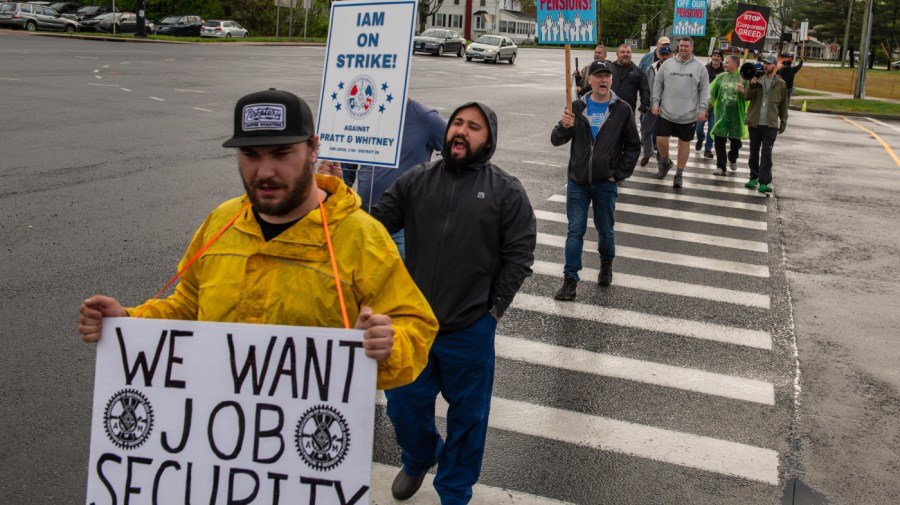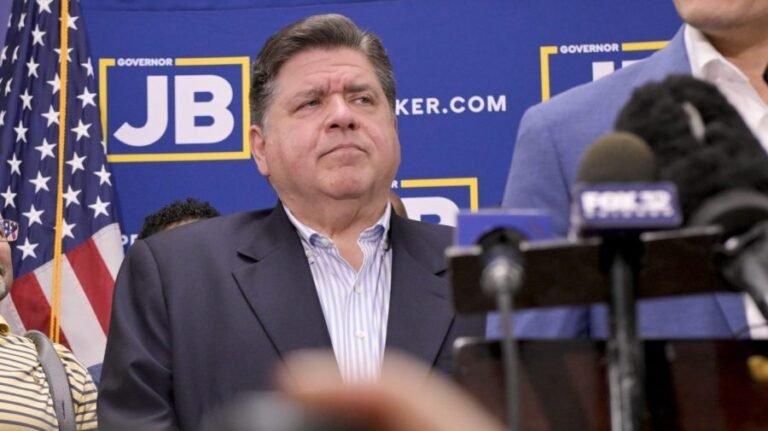
Earlier this month, the federal Bureau of Labor Statistics released employment data that show a weakening economy, with job creation over the past three months not keeping up with population growth.
The lagging job numbers come when the American economy faces rising uncertainty as tariffs continue to appear and disappear and basic needs supports have lost critical funding.
But American workers have felt the economy wasn’t working for them long before the latest jobs numbers. Now it’s only getting worse.
For several years, the usual economic indicators have been strong. Unemployment has been low and wages have been increasing. But many Americans believed we were in a recession a year and a half ago. Earlier this year, 75 percent rated the economy as only “fair” or “poor.”
This mismatch between economic measures and worker sentiment has told us something isn’t right — the people doing the work do not feel economically secure.
It doesn’t have to be this way. Our country has the capacity to create a strong economy where workers don’t feel vulnerable. All of us — policymakers, employers, workers — can reimagine the labor market so that all workers are secure and fairly rewarded for their work.
Work in America has changed over the last 50 years. For some, it has become safer and more stable, but others have lost rights and autonomy.
For decades, the average worker has gotten ahead only sporadically. Too many workers have little job security and few protections to stay on their feet if they lose their job. Reimagining the American economy must shift power to workers so they are secure on the job and between jobs. But how?
First, by improving pay and working conditions. As work has evolved, worker protections have not kept pace. Too many workers face abusive corporate practices, wage theft, gender or racial discrimination, unstable and unpredictable schedules and unsafe work environments, such as those with high heat or exposure to infectious disease.
Labor standards should protect workers from these harms, but they are outdated and weakly enforced. Many existing protections are imperfect and don’t apply to the roughly 15 percent of American workers in gig work and independent contracting.
Even at the core of work — the wage earned — federal policy has failed. The federal minimum wage, which is meant to protect workers from unfairly low pay, is the lowest it has been in over 75 years when adjusted for inflation.
Raising the national minimum wage to $15 per hour would increase pay for nearly 60 million workers — 1 in 3 — by $5,000 a year on average. This change is possible: In 2024, Alaskans and Missourians joined 10 other states and Washington, D.C. when they voted to phase in a $15 minimum wage. A total of 30 states (plus D.C.) have adopted higher minimum wages than federal law requires.
We can also do more to support workers off the job. Economic vulnerability stems from the reality that finding and keeping a job is subject to forces beyond workers’ control.
Recessions can quickly sweep millions into unemployment. Employers can fire workers at any time or severely cut their hours. And taking time for sickness, family emergencies or other unexpected occurrences can lead to lost income or lost jobs.
Workers need support that prevents short-term challenges from becoming a long-term economic crisis. Benefits like paid sick leave can reduce job separations by 25 percent, yet access to paid time off is highly uneven across the nation. The U.S. stands out as one of the only wealthy nations without national paid leave.
Unemployment benefits are intended to support workers through job loss, but the patchwork system only provides benefits to roughly one-quarter of unemployed workers and for as few as 12 weeks in some states (far below the once-standard 26 weeks).
We know this system can work better, as when Congress temporarily boosted unemployment benefits and coverage during the COVID-19 pandemic and prevented steep income drops for millions of workers.
Among the greatest risks workers face is displacement due to changing technology and globalization, which benefit the economy but pose acute risks to some workers. Jobs that are automated or offshored may never return, and formerly valuable skills become obsolete. More than half of workers are concerned about the effect of artificial intelligence on their jobs. We can address emerging risks with new policies such as guaranteed income for all Americans or wage-loss insurance to protect displaced workers’ earnings.
Third, we can empower workers. Workers’ insecurity has also grown because they lack power relative to employers. Decades of eroding labor standards, declines in unionization and greater wage-setting power for employers have left American workers at the mercy of their boss and the market.
Unions can empower workers, translating into higher wages for both union and non-union workers, and 70 percent of Americans support unions. Michigan voters harnessed this support in 2023 by becoming the first state since 1965 to repeal a “right to work” law that decreases union density.
Similar policy changes at the federal level, along with improved protections for organizing workers such as those found in the bipartisan Protecting the Right to Organize Act, could facilitate collective bargaining nationwide.
Other strategies can also strengthen worker power. Industry-specific councils like California’s Fast Food Council bring together workers and businesses to set job standards in a city or state. Increased pay transparency equips workers with information to negotiate for higher wages. Banning noncompete clauses, which lower wages by an average of 4 percent, allows workers to pursue higher incomes.
American workers deserve an economy that works for them. With the current economic and political turmoil, a positive vision for American workers may appear distant.
But this may afford an opportunity. Rather than settling for incremental solutions within a broken system that’s stacked against everyday Americans, let’s think bigger.
Voters in blue and red states alike have shown overwhelming support for worker-friendly policies when they appear on state ballots. Let’s harness that energy to rebuild a modern economy that rewards workers and ensures they are safe and secure.
William J. Congdon is a senior fellow in the Work, Education, and Labor Division at the Urban Institute. He served as a senior economist at the White House Council of Economic Advisers during the Obama administration.
Deborah Kobes is a senior fellow in the Work, Education, and Labor Division at the Urban Institute, where her research focuses on apprenticeship and labor-related issues. Kobes was previously the interim vice president for the Center for Apprenticeship and Work-Based Learning at Jobs for the Future.


